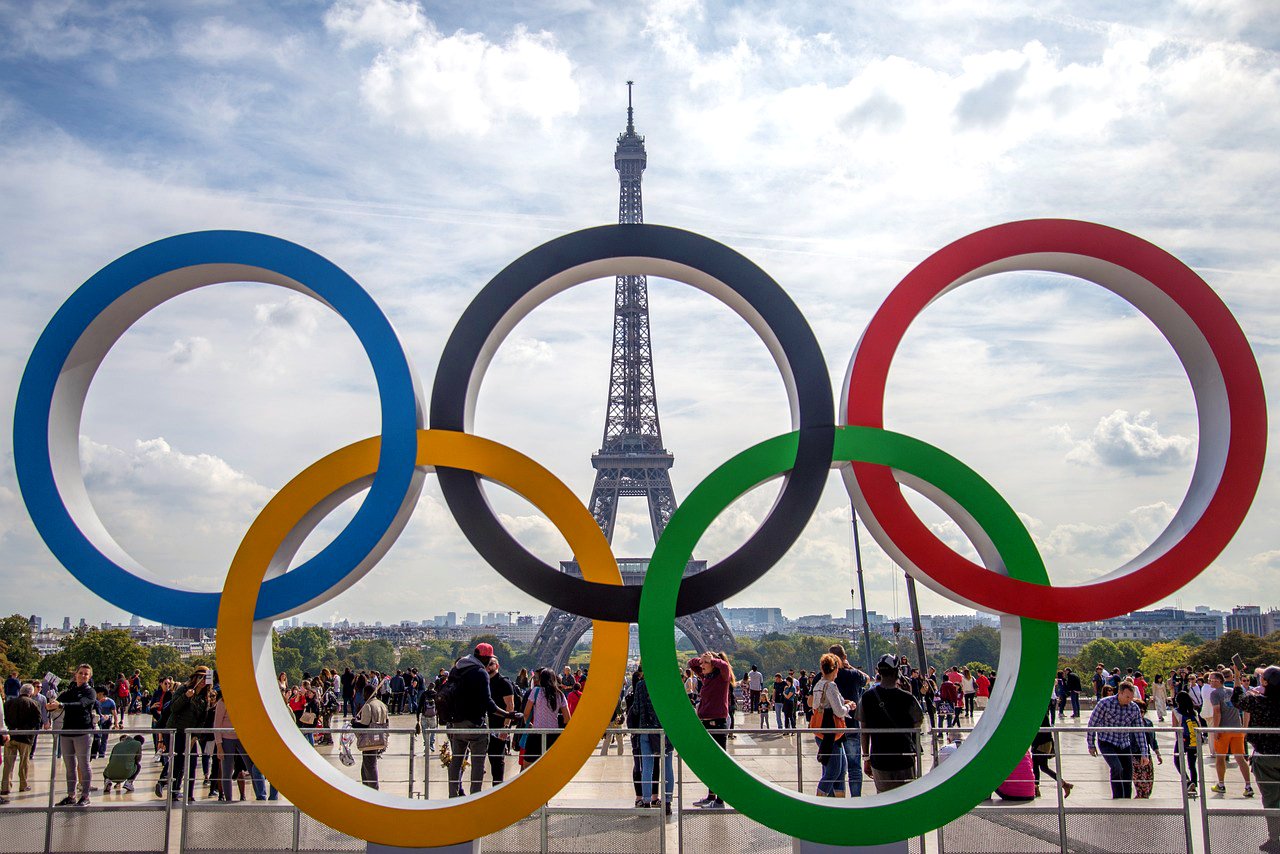
The Olympics 2024 in Paris you get all the details here
As the last update in April 2023, the 2024 Summer Olympics, officially known as the Games of the XXXIII Olympiad, are scheduled to take place in Paris, France, from 26 July to 11 August 2024. Paris will become the second city to host the Olympics three times, after London, having previously hosted the Games in 1900 and 1924. The 2024 Olympics are expected to feature 32 sports, including the return of break-dancing (breaking), skateboarding, sport climbing, and surfing, which were added to appeal to younger audiences and reflect the evolving sports landscape.
1. Key Points about The Olympics 2024 in Paris:
2. Where will The Olympics 2024 be held in Paris?
3. The Olympics 2024 Opening Ceremony
4. Which games are included in The Olympics 2024 in Paris?
5. New Additions and Notable Inclusions:
6. Where you can stay in Paris to involve easily in The Olympics 2024
7. Where you can buy official tickets for The Olympics 2024
8. History about Olympic Games
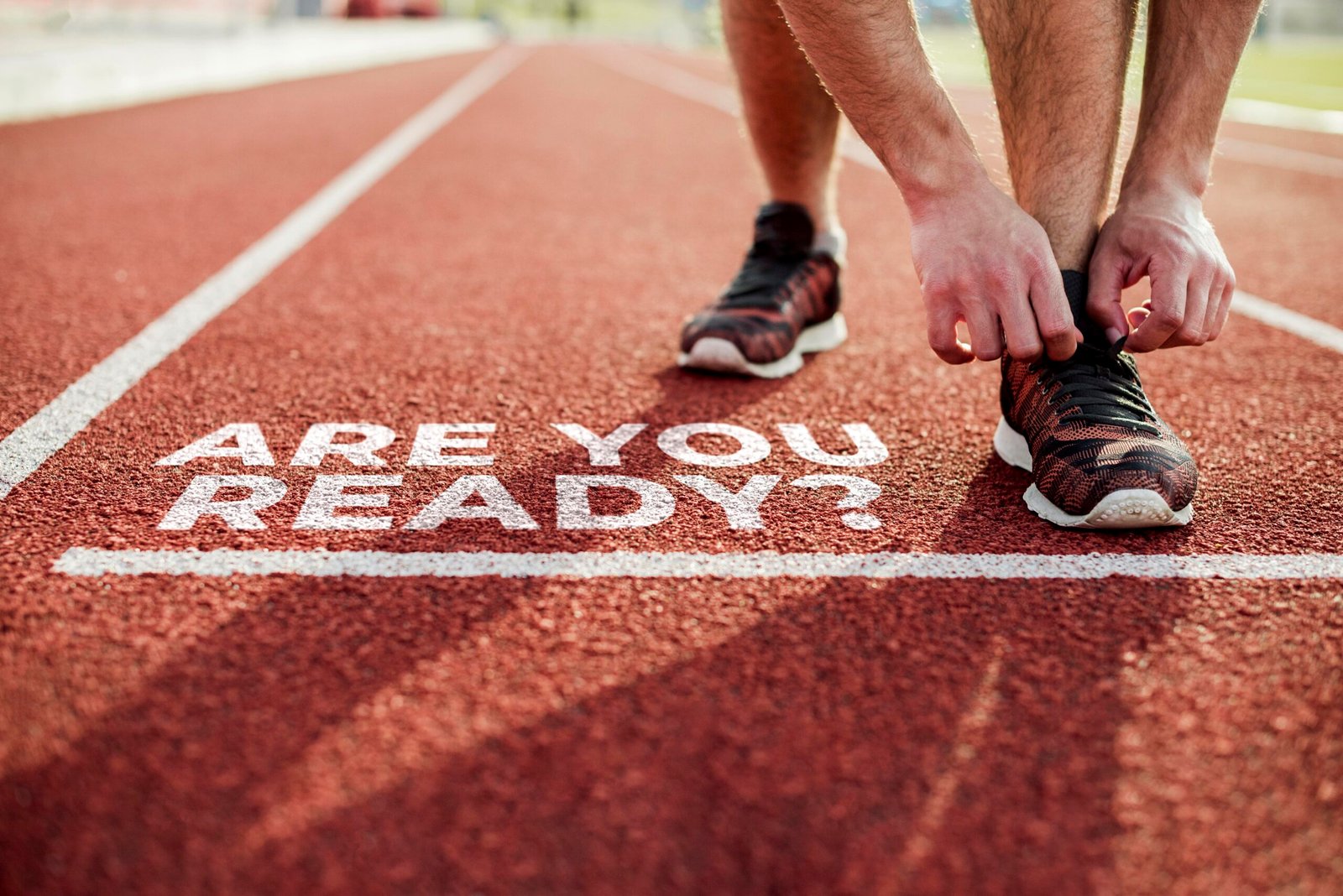
Key Points about The Olympics 2024 in Paris:
- Venues: The Games will utilize a mix of historic sites and modern facilities across Paris and other parts of France. Notable venues include the Stade de France for athletics and the opening and closing ceremonies, the Grand Palais for fencing and taekwondo, and the Champs-Elysées for the marathon and road cycling events. A significant number of events will be held in iconic locations, emphasizing Paris’s cultural heritage.
- Sustainability: Paris 2024 aims to set a new standard for sustainable event management, with a strong focus on environmental responsibility, inclusivity, and social cohesion. Plans include minimizing the carbon footprint, using existing and temporary venues to avoid white elephants, and promoting public transportation options for spectators.
- Innovation: The Paris 2024 Olympics are expected to embrace technology and innovation, offering new ways for fans to engage with the Games and enhancing the athlete experience. This includes digital platforms for fan engagement, advanced broadcasting technologies, and potentially new formats for competition.
- Participation: The Olympics will continue to promote gender equality, with a balanced number of events for men and women. The refugee team, first introduced in the 2016 Rio Games, is expected to participate again, highlighting the IOC’s commitment to social issues and the power of sport to unite.
- Economic Impact: Hosting the Olympics is a significant undertaking, with anticipated benefits including increased tourism, job creation, and urban development. Paris 2024 is seen as an opportunity to accelerate infrastructure projects, including transport upgrades and housing, which will serve the city long after the Games have concluded.
While preparations for the Paris 2024 Olympics are well underway, specific details about events, athletes to watch, and additional cultural programs will continue to emerge as the Games approach. Organizers are focused on delivering a spectacular celebration of sport that will leave a lasting positive impact on the host city and the global Olympic movement.

Where will The Olympics 2024 be held in Paris?
The 2024 Summer Olympics in Paris are set to showcase the city’s iconic landmarks and utilize both existing and temporary venues, emphasizing sustainability and legacy. Paris plans to deliver a compact Games, with a focus on using iconic sites to create a unique and memorable backdrop for the competitions. Here’s an overview of key venues and locations:
Iconic Locations:
- Stade de France: Located in Saint-Denis, just north of Paris, this stadium will host athletics and the rugby sevens. It will also be the site for the opening and closing ceremonies.
- Paris Expo Porte de Versailles: Slated to host several sports, including table tennis and weightlifting, this exhibition centre is one of the largest in France.
- Grand Palais: An historic site and exhibition hall, it will be transformed to host fencing and taekwondo events.
- Champ de Mars: The picturesque field in the shadow of the Eiffel Tower is expected to be transformed into a beach volleyball venue.
- Château de Versailles: The world-renowned palace and gardens will serve as the backdrop for equestrian events and modern pentathlon.
- Esplanade des Invalides: This central Paris location is set to host archery.
- Roland Garros Stadium: Famous for hosting the French Open tennis tournament, it will be utilized for tennis and boxing events.
- Stade YvesduManoir: Located in Colombes, this stadium, which hosted the 1924 Olympics, is expected to be used for field hockey.
Innovative and Sustainable Approach:
Seine River: In an unprecedented move, the opening ceremony will be held on the Seine River, with athletes parading on boats through the heart of Paris, making the ceremony accessible to a large audience along the riverbanks.
Temporary Venues: To minimize construction and ensure sustainability, Paris 2024 will utilize temporary structures for some events. This approach reduces the environmental impact and helps avoid the creation of “white elephant” venues that go unused after the Games.
Urban and Public Spaces: Emphasizing accessibility and engagement, Paris 2024 aims to integrate sports within the city’s fabric, utilizing public spaces and encouraging public participation and spectating.
Legacy and Sustainability:
Paris 2024’s vision extends beyond the Games themselves, focusing on legacy and sustainability. The use of iconic venues not only promises a visually stunning Olympics but also aligns with broader goals of environmental responsibility, social inclusion, and urban development. By leveraging existing infrastructure and prioritizing temporary and demountable venues, Paris 2024 sets a precedent for future sustainable and inclusive Olympic Games.
The Olympics 2024 in Paris Opening Ceremony
Since details about ticket sales can evolve, it’s crucial to refer to the Paris 2024 official website or contact the Organizing Committee directly for the most current information and guidance on purchasing tickets.
As of my last update in April 2023, specific details about the Opening Ceremony for the Paris 2024 Olympic Games were still unfolding, but Paris has promised an innovative and groundbreaking approach to this iconic event. Scheduled for July 26, 2024, the ceremony is set to depart from tradition in a significant way, marking a historic first in the history of the Games.
Historic Venue Choice
For the first time, the Opening Ceremony will not be held in a traditional stadium setting. Instead, Paris plans to utilize the city itself as the backdrop for a spectacular celebration. The ceremony is expected to take place along the Seine River, transforming the heart of Paris into an openair venue. This unprecedented move aims to make the ceremony more accessible to a wider audience, with officials anticipating that it could be the mostwatched live event in history.
Accessibility and Audience
The plan involves having athletes parade on boats along the Seine, through the center of Paris, allowing hundreds of thousands of spectators to view the procession for free. This innovative approach not only highlights Paris’s historical and cultural landmarks but also aligns with the Games’ commitment to sustainability and inclusivity. By moving the ceremony to a more open and accessible location, the organizers hope to engage with a broader audience and create a unique and memorable experience.
Theme and Performances
While specific details about the theme, performers, and artistic direction for the Opening Ceremony were not fully disclosed by April 2023, the ceremony is expected to showcase France’s rich cultural heritage, innovation, and commitment to the Olympic values of excellence, friendship, and respect. The event will likely feature a mix of high-tech displays, artistic performances, and cultural exhibitions that celebrate both French culture and the universal spirit of the Olympics.
Security and Logistics
The decision to host the Opening Ceremony in such a unique and public setting presents significant logistical and security challenges. French authorities and the Paris 2024 Organizing Committee are tasked with ensuring the safety and security of participants and spectators, requiring meticulous planning and coordination. Despite these challenges, the innovative approach to the Opening Ceremony reflects a desire to reimagine the Games for the modern era and engage with audiences in new and exciting ways.
How to Watch The Olympics 2024 in Paris
The Opening Ceremony will be broadcast worldwide, with numerous options for watching the event live, including television broadcasts and online streaming platforms. Details on specific broadcasters and streaming services will become clearer as the event approaches.
As the Paris 2024 Olympics draw closer, more detailed information about the Opening Ceremony, including the program, performers, and how to attend or watch the event, will be released. For the latest updates, it’s advisable to keep an eye on the official Paris 2024 website and official Olympic media channels.
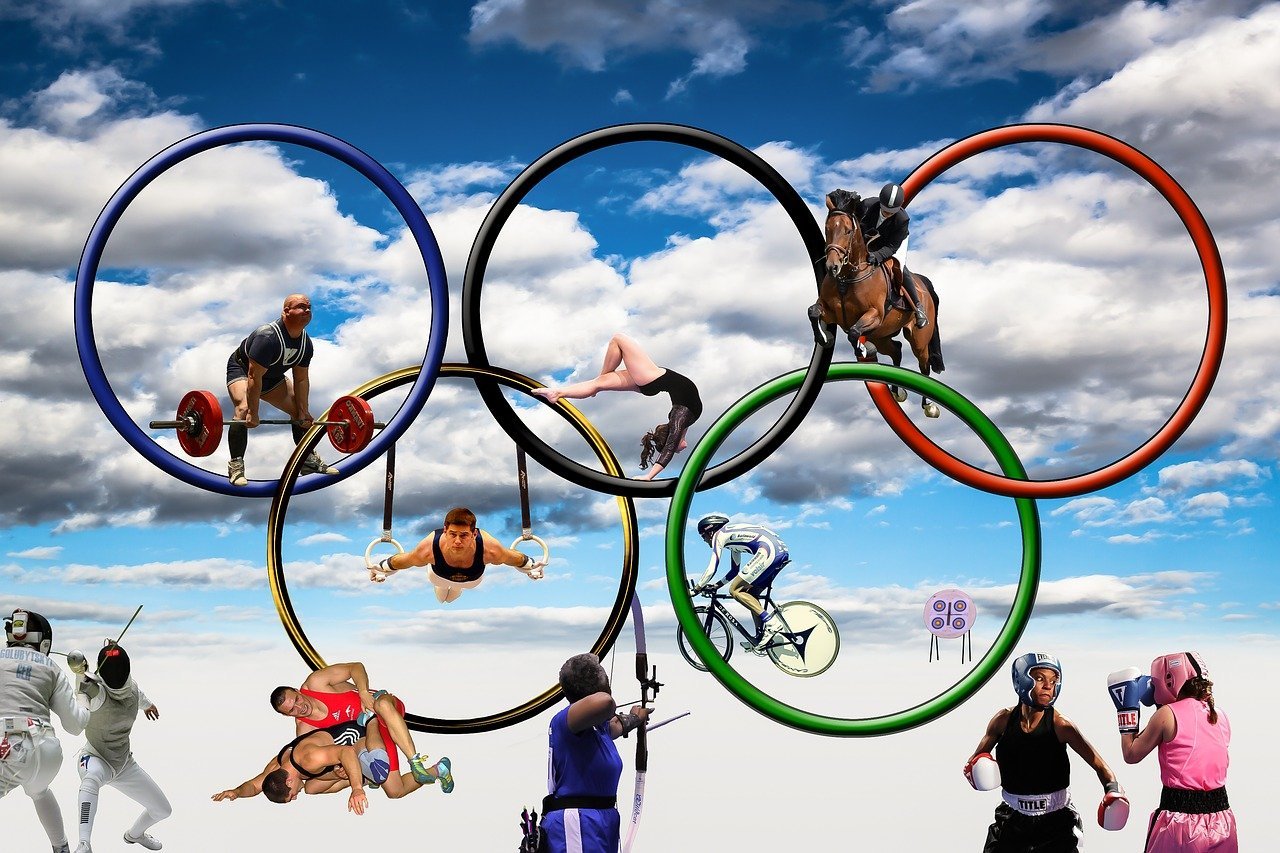
Which games are included in The Olympics 2024 in Paris
The Paris 2024 Summer Olympics are set to feature a wide range of sports, continuing the tradition of showcasing a diverse array of athletic competitions. The International Olympic Committee (IOC) has approved a program that includes 32 sports for the Paris Games. This lineup not only features traditional Olympic sports but also includes newer sports aimed at attracting a younger audience and reflecting contemporary interests. Here’s a list of the sports included:
- Aquatics (Swimming, Diving, Water Polo, Artistic Swimming)
- Archery
- Athletics (Track and Field)
- Badminton
- Baseball/Softball (Softball for women and Baseball for men)
- Basketball (Including 3×3 Basketball)
- Boxing
- Canoeing (Sprint and Slalom)
- Cycling (BMX Freestyle, BMX Racing, Mountain Biking, Road Cycling, Track Cycling)
- Equestrian (Dressage, Eventing, Jumping)
- Fencing
- Football (Soccer)
- Golf
- Gymnastics (Artistic, Rhythmic, Trampoline)
- Handball
- Hockey (Field Hockey)
- Judo
- Karate
- Modern Pentathlon
- Rowing
- Rugby Sevens
- Sailing
- Shooting
- Skateboarding
- Sport Climbing
- Surfing
- Table Tennis
- Taekwondo
- Tennis
- Triathlon
- Volleyball (Including Beach Volleyball)
- Weightlifting
- Wrestling (Freestyle and GrecoRoman)
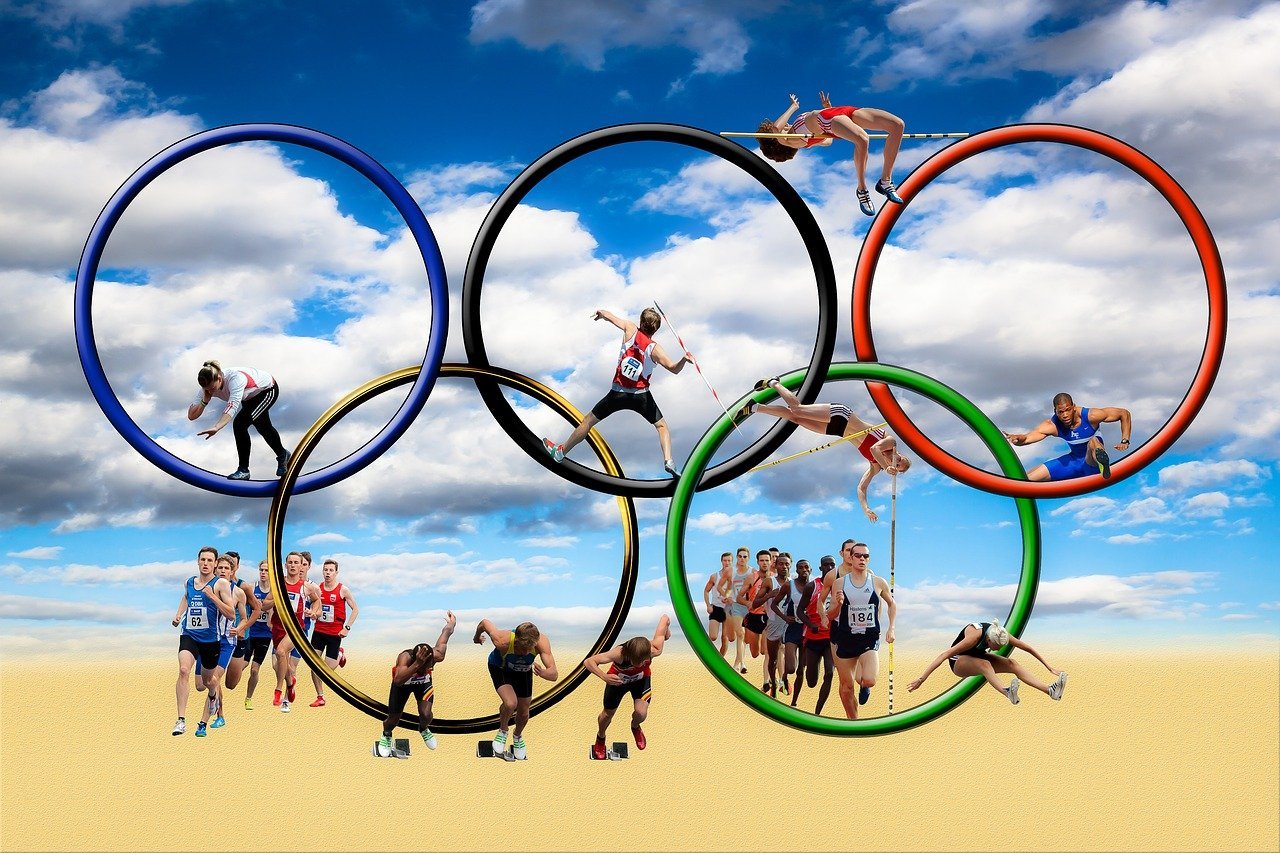
New Additions and Notable Inclusions:
Break-dancing (Breaking): Making its Olympic debut, breaking is expected to be a highlight, appealing to younger audiences and showcasing the cultural trend of urban sports.
Skateboarding, Sport Climbing, and Surfing: After their successful debut in Tokyo 2020, these sports have been retained for Paris 2024, further emphasizing the Games’ focus on youth and urban culture.
Karate: After being included in the Tokyo 2020 program, karate was initially not included for Paris 2024 but was later reinstated, reflecting the dynamic nature of Olympic program decisions.
The inclusion of these sports reflects the IOC’s ongoing efforts to rejuvenate the Games, engage new audiences, and adapt to changing trends in global sports.
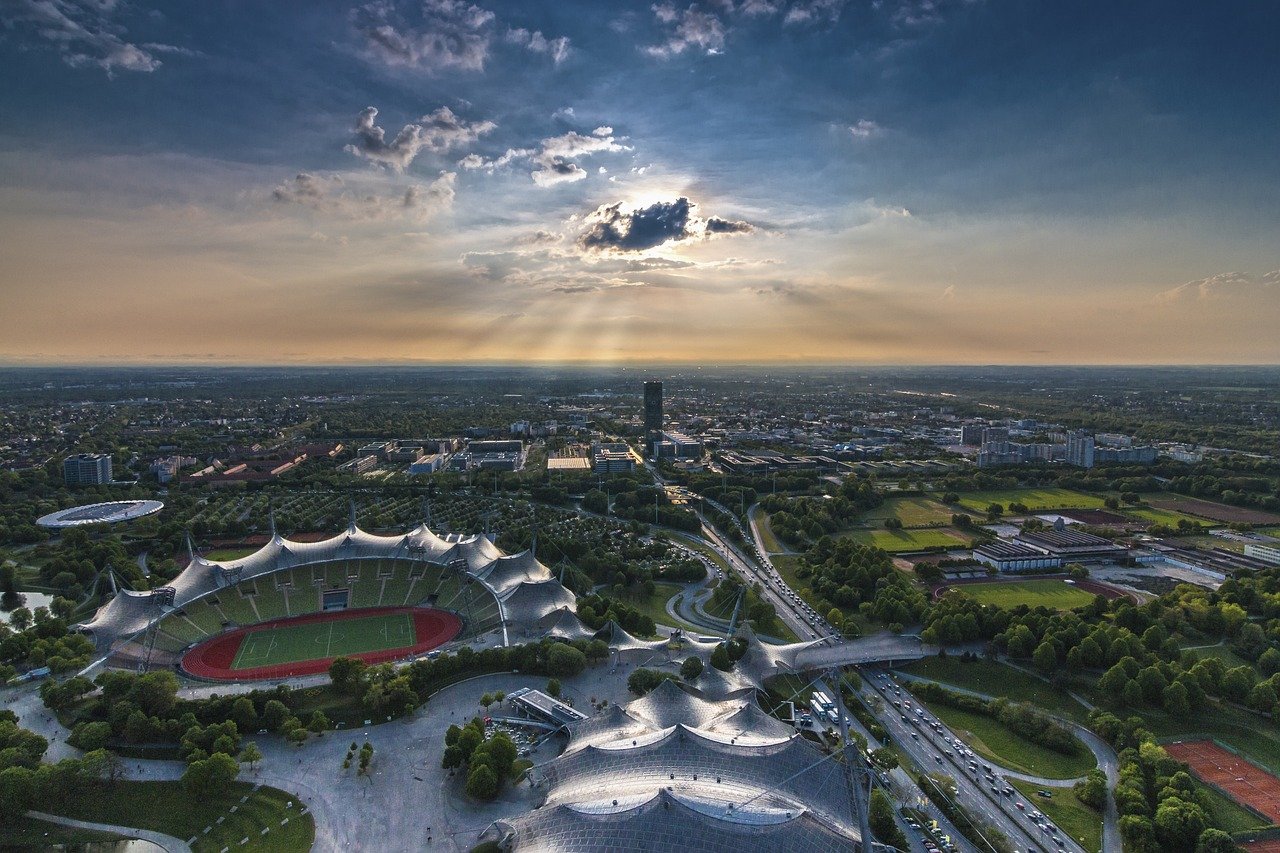
Where you can stay in Paris to involve easily in The Olympics 2024
Choosing where to stay in Paris during the 2024 Olympics involves considering several factors, including proximity to Olympic venues, access to public transportation, and the type of experience you wish to have in the city. Paris is divided into 20 arrondissements (districts), spiraling out from the 1st in the city center. The city boasts an efficient public transport system, including the Metro, RER (regional trains), buses, and trams, making it relatively easy to get around. Here are some areas you might consider for different needs and preferences:
Near Olympic Venues
SaintDenis: The Stade de France in SaintDenis, north of Paris, will host major events, including athletics and the opening and closing ceremonies. Staying in or near SaintDenis will offer convenience for these events.
7th Arrondissement: Home to the Champ de Mars and close to the Eiffel Tower, this area will be central to the Olympics. It’s an excellent location for those looking to be in the heart of Olympic activity, though it can be pricey.
16th Arrondissement: Near Roland Garros and the Parc des Princes, this is an upscale area offering a more relaxed atmosphere while still being accessible to key venues.
Good Public Transport Links
Near Major Train Stations: Staying near Gare du Nord, Gare de l’Est, Gare de Lyon, or Gare SaintLazare can be strategic. These stations offer excellent transport links within Paris and to suburban areas where some events may be held.
4th, 5th, and 6th Arrondissements: Central and wellconnected by public transport, these districts are near the Seine and offer a classic Parisian experience, with plenty of cafes, shops, and historical sites.
For a Local Experience
Le Marais (3rd and 4th Arrondissements): Known for its vibrant nightlife, boutiques, and historic sites, staying here offers a rich cultural experience.
Montmartre (18th Arrondissement): For those looking for a more bohemian vibe, Montmartre offers charming streets, stunning views of the city, and a rich artistic history.
Budget Friendly Options
Outer Arrondissements: The 12th, 13th, 19th, and 20th arrondissements can offer more affordable accommodation options. These areas are still wellconnected by public transport but are a bit further from the center.
La Défense: While primarily a business district, La Défense has good public transport links and might offer more modern but affordable accommodation options.
Booking Tips
Book Early: Accommodation will be in high demand during the Olympics. Booking as early as possible can secure better rates and choices.
Consider Alternative Accommodation: Beyond hotels, consider shortterm rental apartments, hostels, or even camping on the outskirts of Paris for a different experience or to suit budget constraints.
Check the Transport Links: Ensure your accommodation choice has good public transport links to the Olympic venues you plan to visit.
Remember, Paris is a city used to hosting large numbers of tourists, and its public transport system is designed to cope with high demand. Wherever you choose to stay, you’ll likely be able to navigate to the various Olympic venues with relative ease, provided you plan your journeys.

You can buy official tickets for The Olympics 2024
As of my last update in April 2023, for the Paris 2024 Olympic Games, the official ticket sales are managed through the Paris 2024 Organizing Committee’s official website and authorized ticket resellers (ATRs) designated for specific countries and territories. It’s essential to purchase tickets through these official channels to avoid scams and unauthorized sellers.
Steps to Purchase Tickets:
- Official Website: Start by visiting the Paris 2024 official website. This platform is the primary source for all information related to the Games, including how to buy tickets. The site should guide you through the process of creating an account, which is often the first step in applying for tickets.
- Ticketing Phases: Ticket sales for the Olympics typically occur in phases, including a lottery phase for the most in demand tickets, followed by general sales. Initial phases may require you to register your interest or enter a ballot before you can purchase tickets. Details about these phases, including timelines, will be available on the official website.
- Authorized Ticket Resellers (ATRs): For those living outside France, the Paris 2024 Organizing Committee has appointed ATRs in various countries. These resellers are the only official channels through which you can securely purchase tickets from abroad. The list of ATRs and their contact information should be available on the Paris 2024 website or through your country’s National Olympic Committee (NOC).
- Prices and Categories: Ticket prices vary based on the event, category of the seat, and the stage of the competition (e.g., preliminary rounds vs. finals). The official website and ATRs will provide detailed pricing information and the venue map to help you decide.
- Payment and Confirmation: Once you’ve selected your tickets and are ready to purchase, follow the website’s instructions for payment. Ensure your transaction is secure. After purchasing, you should receive a confirmation email with your ticket details. Keep this information safe.
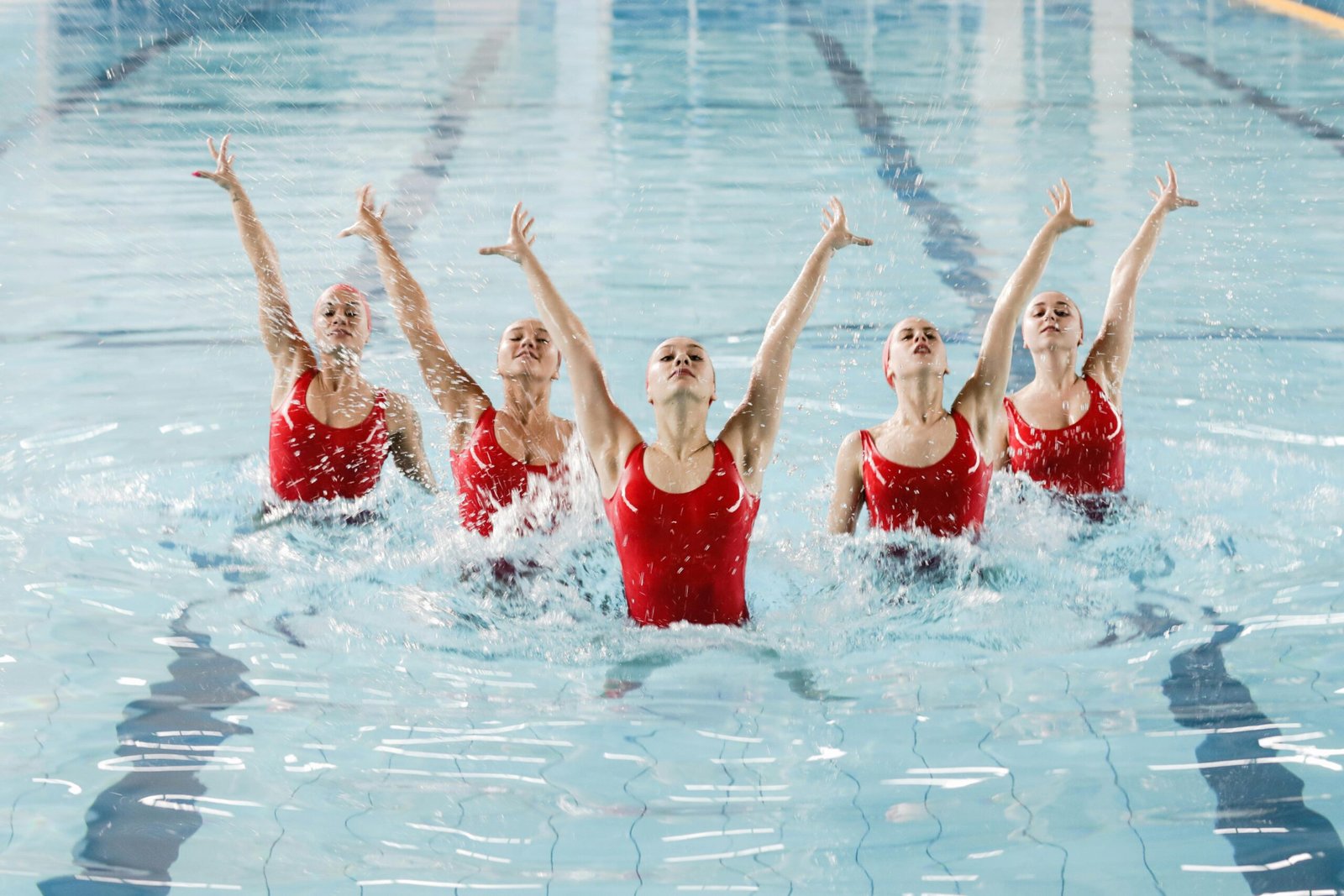
Tips for Purchasing Tickets:
Stay Informed: Sign up for email updates on the Paris 2024 website to receive the latest information on ticket sales phases and other important updates.
Plan Early: High demand events sell out quickly. Knowing which events you want to attend and being ready as soon as tickets go on sale can increase your chances of securing tickets.
Beware of Scams: Always use the official Paris 2024 website or an authorized reseller to purchase your tickets. Be cautious of deals that seem too good to be true, and avoid buying tickets from unofficial sources.
How much are Paris 2024 tickets cost?
As of the update in April 2023, the Paris 2024 Organizing Committee had provided some indicative pricing for the Olympic Games tickets but had not released the complete, detailed pricing structure for all events. Ticket prices are expected to vary widely depending on the event, the category of the seat, and whether the event is a preliminary round or a medal round.
Indicative Pricing Information:
Opening Ceremony: The prices for the Opening Ceremony, which is set to be a historic event taking place along the Seine River, are expected to be higher given its unique format and the spectacle involved. While specific prices were not detailed, for previous Olympics, Opening Ceremony tickets have typically been among the most expensive due to the high demand and the grand scale of the event.
General Event Tickets: Early indications suggested that there would be a wide range of ticket prices, aiming to make the Games accessible to as many people as possible. The Paris 2024 Organizing Committee announced that there would be tickets available at lower price points, with some reports suggesting that prices could start at around €24 for certain events. This initiative is part of a broader effort to ensure inclusivity and accessibility, allowing fans from diverse backgrounds to experience the Olympics.
Premium Events: For marquee events, such as track and field finals, swimming finals, and the basketball gold medal game, ticket prices are expected to be on the higher end. However, specific prices for these events had not been released as of my last update.
Ticket Sales Phases:
The Paris 2024 tickets are expected to be sold in phases, starting with a lottery or ballot phase for the most in demand tickets, followed by general sales. Special packages and tickets for the Paralympic Games will also be available, with their pricing structure expected to be announced separately.
How to Stay Updated:
For the most accurate and up-to-date information on ticket prices for the Paris 2024 Olympic Games:
Visit the Official Paris 2024 Website: The organizing committee’s official website will have the latest news on ticket sales, including detailed pricing information once it is announced.
Sign Up for Alerts: Many official Olympic ticketing platforms offer the option to sign up for alerts and updates, which can provide you with the latest information on ticket releases, pricing, and purchasing options.
Given the evolving nature of the event organization, it’s essential to rely on official sources for the most current information.

History about Olympic Games
The Olympic Games are a global multisport event subdivided into summer and winter games, where thousands of athletes from around the world participate in a variety of competitions. The history of the Olympics is rich and spans more than a century in its modern incarnation, with roots reaching back to ancient Greece.
Ancient Olympics
The origins of the Olympic Games can be traced back to 776 BC in Olympia, Greece. These ancient games were held in honor of Zeus, the king of the gods, and featured various athletic competitions among representatives of the city-states and kingdoms of Ancient Greece. The games were held every four years, a period known as an Olympiad. Notable events included running races, long jump, shot put, javelin, boxing, pankration (a form of martial arts), and equestrian events. The ancient Olympics continued for nearly 12 centuries until Emperor Theodosius I banned them in 393 AD as part of his efforts to promote Christianity.
Revival of the Olympics
The idea of reviving the Olympic Games took hold in the 19th century, largely thanks to the efforts of Baron Pierre de Coubertin of France. Inspired by the ancient tradition and motivated by the desire to promote physical education and international peace and cooperation, Coubertin proposed the idea of a modern Olympic Games. After gaining support from various national sports federations, the International Olympic Committee (IOC) was established in 1894, and the first modern Olympics were held in Athens, Greece, in 1896.
Evolution of the Modern Olympics
The modern Olympics have grown from a modest beginning with 14 nations and 241 athletes participating in the 1896 Athens Games, to a global event featuring over 200 nations and thousands of athletes. The Games have been held every four years, with interruptions only during the World War I and World War II periods.
Significant milestones in the history of the Olympics include:
Introduction of the Winter Games: The first Winter Olympics were held in Chamonix, France, in 1924, featuring winter sports like skiing, skating, and ice hockey.
Paralympic Games: Starting in 1960 in Rome, the Paralympics have been held for athletes with disabilities, following the Summer Olympics.
Youth Olympic Games: Launched in 2010 in Singapore, these games focus on young athletes aged 14 to 18.
Inclusion and Diversity: Over the years, the Olympics have become more inclusive, allowing women’s participation from 1900 in Paris, and continuously adding new sports and events to reflect global interests and inclusivity.
Political and Social Impact: The Olympics have often been a platform for political, social, and environmental issues, with boycotts, protests, and moments of international unity and tension.
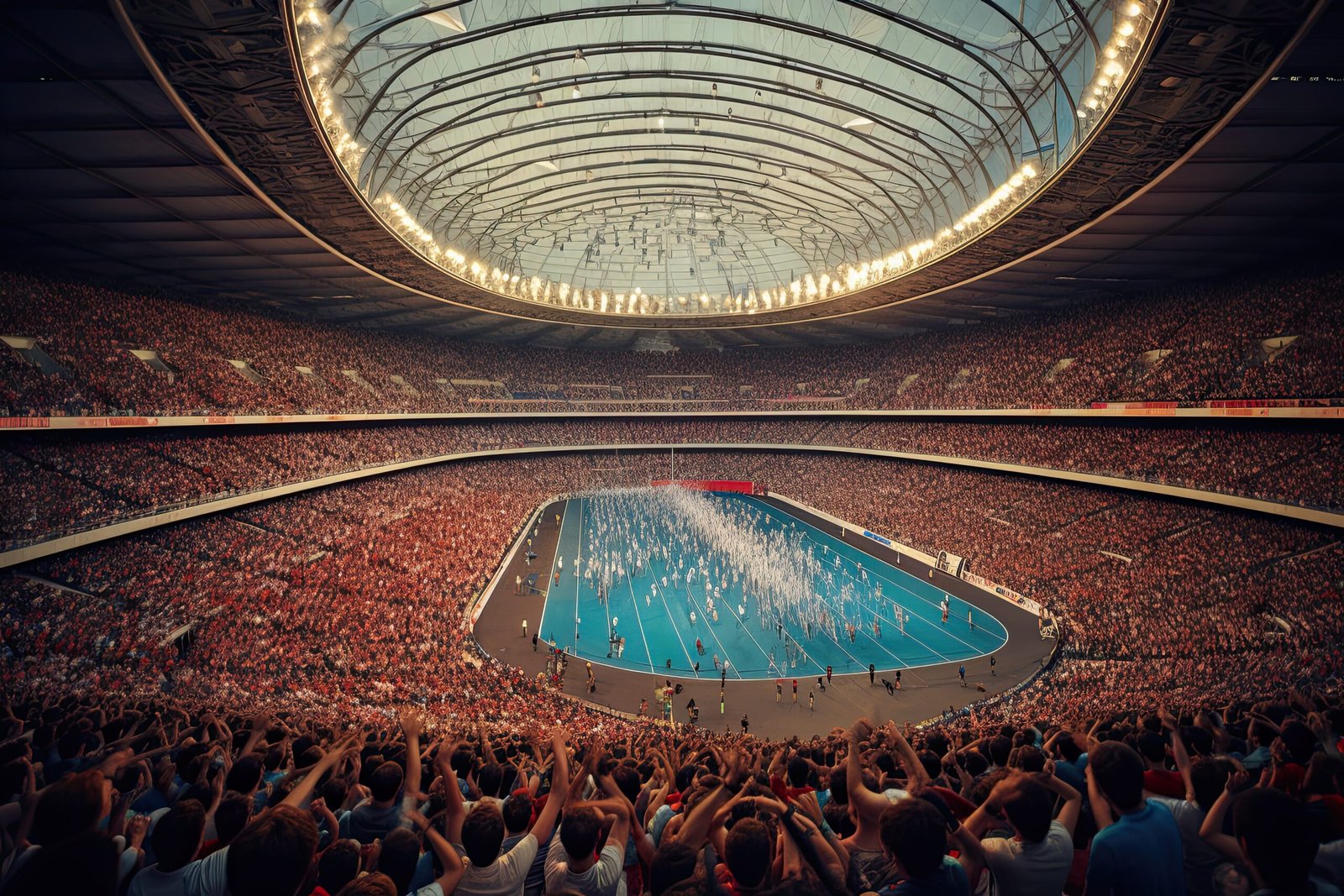
The Olympic Games have not only been a showcase for athletic excellence but also a means to foster peace, understanding, and mutual respect among cultures worldwide. The Olympics’ motto, “Citius, Altius, Fortius” (Faster, Higher, Stronger), reflects the spirit of the Games, encouraging athletes and nations to strive for excellence.
